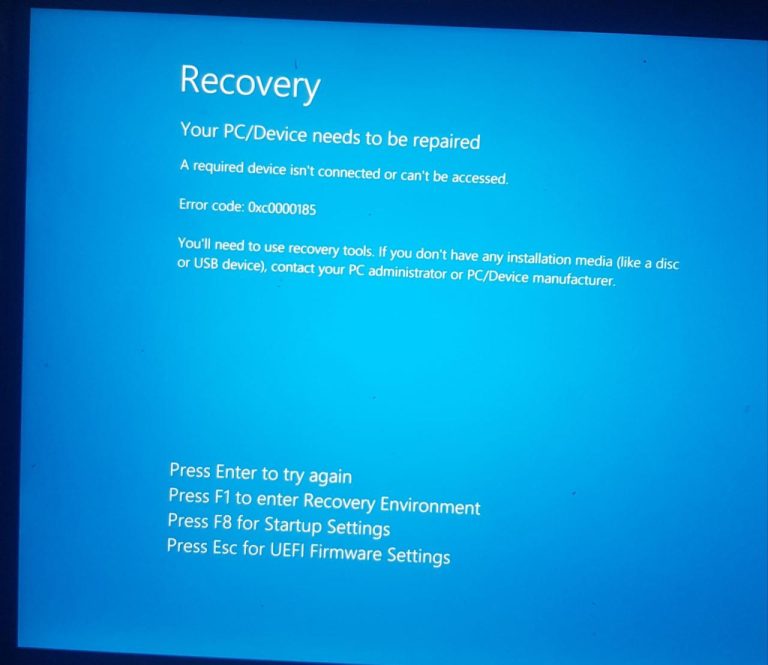Overcoming Common Pc Gaming Lag Issues
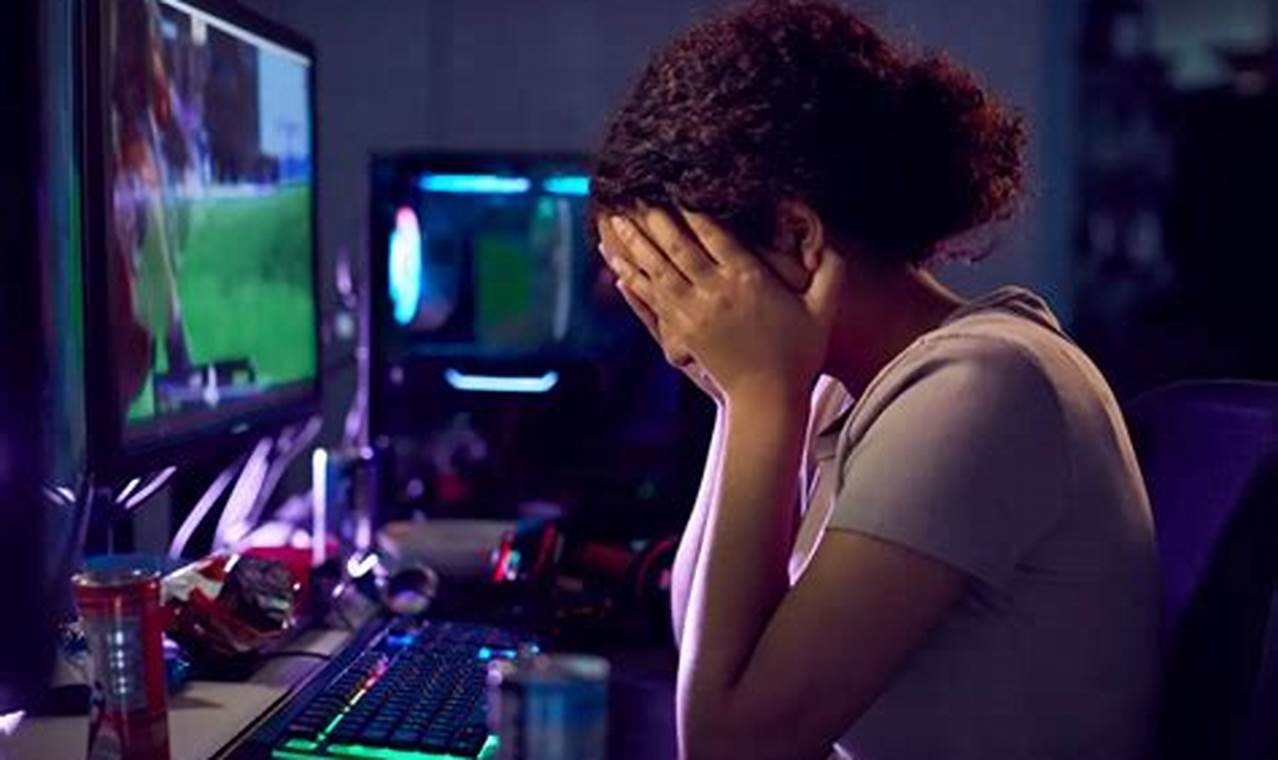
Overcoming common PC gaming lag issues involves mitigating performance bottlenecks and optimizing hardware and software configurations to achieve a smooth and responsive gaming experience. For instance, identifying and resolving issues with internet connectivity, outdated drivers, or resource-intensive background processes can significantly reduce latency.
Solving these problems not only enhances the overall gaming experience but also allows players to participate more effectively in multiplayer environments, access improved frame rates and visual quality, and streamline the troubleshooting process for future issues. Addressing lag issues can be traced back to the early days of PC gaming, when the limitations of hardware and software often led to frustrating gameplay experiences.
This article delves into the various aspects of overcoming common PC gaming lag issues, providing practical tips and comprehensive solutions to ensure optimal performance. By understanding the causes and employing effective strategies, gamers can minimize interruptions and maximize their gaming potential.
Overcoming Common PC Gaming Lag Issues
Understanding the essential aspects of overcoming common PC gaming lag issues is crucial for optimizing the gaming experience. These aspects encompass various dimensions, including hardware, software, and network configurations.
- Network Optimization
- Hardware Upgrades
- Driver Updates
- Background Process Management
- Game Settings Optimization
- Overclocking
- Cooling and Ventilation
- Malware and Virus Protection
For instance, optimizing network settings by prioritizing gaming traffic or upgrading hardware components such as the graphics card or processor can significantly reduce lag. Additionally, keeping drivers up to date, managing background processes to free up system resources, and adjusting game settings to suit the hardware capabilities are essential aspects to address. Furthermore, ensuring proper cooling and ventilation prevents overheating, which can degrade performance. Regularly scanning for malware and viruses is also crucial, as malicious software can consume system resources and introduce lag.
Network Optimization
Network optimization is a crucial component of overcoming common PC gaming lag issues. Lag, often experienced as delays or interruptions in gameplay, can be caused by various network-related factors. Optimizing the network involves implementing strategies to minimize these factors and enhance the overall gaming experience.
One key aspect of network optimization is reducing latency, which refers to the time taken for data to travel between the gaming device and the server. High latency can lead to noticeable delays in player inputs and actions, affecting gameplay. Effective techniques to reduce latency include using a wired Ethernet connection instead of Wi-Fi, closing unnecessary background applications that may consume bandwidth, and optimizing router settings for gaming.
Another important aspect is minimizing packet loss, which occurs when data packets fail to reach their destination during transmission. Packet loss can result in incomplete or corrupted data, causing interruptions or glitches in gameplay. To address packet loss, gamers can troubleshoot their network hardware and connections, use network monitoring tools to identify potential issues, and consider using a VPN to improve routing and stability.
By optimizing their network settings and addressing common issues, gamers can significantly reduce lag and improve the overall responsiveness and smoothness of their gaming experience.
Hardware Upgrades
Hardware upgrades play a pivotal role in overcoming common PC gaming lag issues. By upgrading specific components, gamers can significantly enhance the performance and responsiveness of their gaming systems, reducing lag and improving the overall gaming experience.
-
Graphics Card Upgrade
The graphics card is responsible for rendering the game’s visuals. Upgrading to a more powerful graphics card can significantly improve frame rates, reduce stuttering, and enhance the overall visual quality of the game.
-
Processor Upgrade
The processor handles the game’s logic and calculations. Upgrading to a faster processor can reduce loading times, improve AI performance, and provide a smoother overall gaming experience.
-
Memory (RAM) Upgrade
RAM provides temporary storage for the game’s data and instructions. Upgrading to more RAM can reduce stuttering and improve the game’s stability, especially in open-world games or those with complex textures.
-
Storage (SSD/HDD) Upgrade
Storage devices store the game’s files and data. Upgrading to a solid-state drive (SSD) can dramatically reduce loading times and improve the overall responsiveness of the game.
By carefully selecting and upgrading the appropriate hardware components, gamers can effectively overcome common PC gaming lag issues and achieve a more immersive and enjoyable gaming experience.
Driver Updates
Driver updates play a vital role in overcoming common PC gaming lag issues. Drivers act as intermediaries between the operating system and hardware components, ensuring optimal communication and performance. Keeping drivers up to date addresses compatibility issues, resolves bugs, and introduces performance enhancements, contributing significantly to a smoother and more responsive gaming experience.
-
Chipset Drivers
Chipset drivers manage communication between the motherboard and other components. Updating chipset drivers ensures compatibility with new hardware and operating system updates, reducing the risk of conflicts and instability.
-
Graphics Card Drivers
Graphics card drivers optimize the performance and stability of the graphics card. Regular updates address graphical glitches, improve frame rates, and introduce new features, enhancing the overall visual experience and reducing lag.
-
Network Card Drivers
Network card drivers manage the network connection, affecting online gaming performance. Updating network card drivers resolves connectivity issues, improves data transfer rates, and reduces latency, resulting in a more stable and responsive gaming experience.
-
Audio Drivers
Audio drivers ensure proper functioning of the sound card, delivering high-quality audio and minimizing audio glitches. Updating audio drivers addresses compatibility issues, improves sound quality, and reduces latency, enhancing the overall gaming immersion.
By regularly updating drivers, gamers can proactively address potential issues, optimize hardware performance, and minimize lag, ensuring a smooth and enjoyable gaming experience.
Background Process Management
Background process management is a critical component of overcoming common PC gaming lag issues. Background processes are programs or services that run in the background of the operating system, often without the user’s knowledge. These processes can consume system resources, such as CPU and memory, which can lead to reduced performance in games.
For example, antivirus software, file indexing services, and cloud storage applications are common background processes that can impact gaming performance. When these processes are running, they can compete with the game for resources, causing stuttering, frame drops, and other performance issues.
To overcome these issues, it is important to identify and manage background processes effectively. This can be done through various methods, such as:
- Disabling unnecessary background processes
- Adjusting the priority of background processes
- Using process monitoring tools to identify resource-intensive processes
By carefully managing background processes, gamers can free up system resources and improve the overall performance of their gaming systems. This can result in reduced lag, smoother gameplay, and a more enjoyable gaming experience.
Game Settings Optimization
Game settings optimization is a crucial aspect of overcoming common PC gaming lag issues. By fine-tuning various game settings, gamers can significantly improve performance and reduce lag, resulting in a smoother and more enjoyable gaming experience. Here are four key facets of game settings optimization:
-
Graphics Settings
Adjusting graphics settings, such as resolution, texture quality, and anti-aliasing, can significantly impact performance. Lowering these settings can free up GPU resources, reducing lag and improving frame rates.
-
Display Settings
Optimizing display settings, such as refresh rate and V-sync, can minimize screen tearing and input lag. Selecting a higher refresh rate monitor and enabling V-sync can provide a smoother and more responsive gaming experience.
-
Audio Settings
Audio settings, such as sound quality and speaker configuration, can also affect performance. Disabling unnecessary audio enhancements and using a dedicated sound card can free up CPU resources and reduce lag.
-
Gameplay Settings
Gameplay settings, such as AI difficulty and physics calculations, can impact CPU usage. Adjusting these settings to lower levels can reduce lag, especially in CPU-intensive games.
By carefully optimizing game settings, gamers can effectively overcome common PC gaming lag issues and achieve a more immersive and enjoyable gaming experience.
Overclocking
Overclocking involves intentionally exceeding the manufacturer’s specified clock speed of a hardware component, such as the CPU or GPU, to enhance its performance. This technique can be particularly effective in overcoming common PC gaming lag issues by boosting processing power and reducing frame rendering times.
-
CPU Overclocking
Increasing the CPU’s clock speed can significantly improve overall system performance, leading to reduced lag and smoother gameplay. However, it requires careful monitoring and cooling to maintain stability.
-
GPU Overclocking
Overclocking the GPU can enhance graphical performance, resulting in higher frame rates and improved visual quality. Similar to CPU overclocking, it requires proper cooling and power supply to ensure stability.
-
RAM Overclocking
Increasing the RAM’s clock speed can reduce memory latency and improve data access times. This can be beneficial for games that heavily rely on fast memory access, such as open-world RPGs or strategy games.
-
Cooling Considerations
Overclocking generates additional heat, making proper cooling crucial. Upgrading to a more efficient CPU cooler or installing additional case fans can help dissipate heat and maintain system stability during overclocking.
While overclocking can be an effective way to overcome PC gaming lag issues, it should be approached with caution. Excessive overclocking can lead to system instability, reduced component lifespan, and even hardware damage. It is important to research and understand the specific capabilities and limitations of the hardware before attempting to overclock.
Cooling and Ventilation
Cooling and ventilation play a pivotal role in overcoming common PC gaming lag issues. Excessive heat can lead to component throttling, reduced performance, and system instability, negatively impacting the gaming experience. Maintaining optimal cooling and ventilation ensures that system components operate within their intended temperature ranges, promoting stable and lag-free gameplay.
Real-life examples of cooling and ventilation measures include using high-performance CPU coolers, installing additional case fans to enhance airflow, and optimizing case airflow patterns to dissipate heat effectively. By addressing cooling and ventilation issues, gamers can prevent thermal throttling, which occurs when components reduce their clock speeds to avoid overheating. This proactive approach helps maintain consistent performance and prevents sudden frame drops or stuttering during intense gaming sessions.
Understanding the connection between cooling and ventilation and overcoming common PC gaming lag issues empowers gamers to make informed decisions about their system configurations. By implementing proper cooling measures, they can eliminate a significant source of performance bottlenecks and achieve a smoother, more immersive gaming experience. Additionally, regular maintenance, such as cleaning dust from fans and heat sinks, helps maintain optimal cooling performance over time.
Malware and Virus Protection
Malware and virus protection play a critical role in overcoming common PC gaming lag issues. Malicious software, including viruses, spyware, and adware, can consume system resources, slow down performance, and interfere with network connectivity, leading to lag and other gaming disruptions.
For instance, malware can install hidden programs that run in the background, taking up CPU and memory resources that could otherwise be allocated to gaming. Additionally, viruses can corrupt game files or modify system settings, causing crashes or performance issues. Furthermore, malware can exploit network vulnerabilities to send spam or launch denial-of-service attacks, which can disrupt online gaming.
To prevent these issues, gamers should employ robust malware and virus protection measures. This includes installing reputable antivirus software, keeping it up to date, and performing regular scans to detect and remove any malicious threats. Additionally, gamers should be cautious when downloading files from untrusted sources, avoid clicking on suspicious links, and use strong passwords to protect their accounts and systems.
By implementing effective malware and virus protection strategies, gamers can safeguard their systems from malicious attacks, reduce the risk of performance degradation, and ensure a smoother and more enjoyable gaming experience.
FAQs on Overcoming Common PC Gaming Lag Issues
This FAQ section addresses common questions and concerns related to overcoming PC gaming lag issues. It provides clear and concise answers to help gamers identify and resolve performance problems, ensuring a smooth and enjoyable gaming experience.
Question 1: What are the most common causes of PC gaming lag?
PC gaming lag can result from various factors, including insufficient hardware, outdated drivers, network issues, background processes, demanding game settings, and inadequate cooling.
Question 2: How can I determine the cause of lag in my PC games?
To identify the cause of lag, monitor system performance using tools like Task Manager or MSI Afterburner. Check for high CPU or GPU usage, network latency, or excessive background processes.
Question 3: What are some effective ways to reduce lag in online games?
For online gaming, optimize network settings by prioritizing gaming traffic, using a wired connection, and reducing background downloads. Additionally, consider using a VPN to improve routing and stability.
Question 4: How can I optimize my PC’s hardware for gaming?
Upgrade hardware components such as the graphics card, processor, and memory (RAM) to meet the demands of modern games. Ensure proper cooling to prevent thermal throttling and maintain optimal performance.
Question 5: What are some common game settings that can affect lag?
Game settings such as resolution, graphics quality, and anti-aliasing can impact performance. Adjust these settings to find a balance between visual quality and.
Question 6: How can I prevent malware and viruses from causing lag?
Install reputable antivirus software, keep it updated, and perform regular scans to detect and remove malicious threats. Avoid downloading files from untrusted sources and use strong passwords to protect your system.
These FAQs provide a comprehensive overview of common PC gaming lag issues and offer practical solutions to overcome them. By understanding the causes of lag and implementing effective strategies, gamers can significantly improve their gaming experience and enjoy smoother, more immersive gameplay.
In the next section, we will delve deeper into advanced troubleshooting techniques and discuss hardware and software optimizations for further enhancing gaming performance.
Tips to Overcome Common PC Gaming Lag Issues
This section provides actionable tips to help gamers overcome common PC gaming lag issues and achieve a smoother, more enjoyable gaming experience.
Tip 1: Update Graphics Drivers
Keep your graphics card drivers up to date to ensure compatibility with the latest games and optimize performance. Outdated drivers can cause lag and other issues.
Tip 2: Close Unnecessary Background Programs
Running multiple programs in the background can consume system resources and lead to lag. Close any unnecessary programs before gaming to free up resources.
Tip 3: Optimize Game Settings
Adjust game settings, such as graphics quality and resolution, to find a balance between visual fidelity and performance. Lowering certain settings can reduce lag.
Tip 4: Check for Malware and Viruses
Malware and viruses can slow down your system and cause lag. Regularly scan your PC for malicious software and remove any infections to improve performance.
Tip 5: Use a Wired Internet Connection
If possible, use a wired Ethernet connection instead of Wi-Fi for a more stable and reliable internet connection. Wi-Fi signals can fluctuate and cause lag.
Tip 6: Disable Overclocking
If you have overclocked your CPU or GPU to enhance performance, try disabling overclocking temporarily. Overclocking can sometimes lead to instability and lag.
Tip 7: Upgrade Hardware
If your PC’s hardware is outdated or insufficient for modern games, consider upgrading components like the graphics card, processor, or RAM. Upgrading can significantly reduce lag.
Tip 8: Improve Cooling
Ensure that your PC has adequate cooling to prevent overheating. Overheating can throttle performance and cause lag. Clean fans and heatsinks regularly.
By following these tips, gamers can effectively overcome common PC gaming lag issues and enhance their overall gaming experience. Implementing these strategies can result in smoother gameplay, reduced lag, and improved performance.
In the next section, we will delve deeper into the technical aspects of overcoming lag, discussing advanced troubleshooting techniques and exploring hardware and software optimizations for further enhancing gaming performance.
Conclusion
Overcoming common PC gaming lag issues requires a comprehensive approach that addresses various factors affecting system performance. This article has explored several key aspects, including hardware optimization, software management, and network configuration.
Main points to consider are:
- Upgrading hardware components, such as the graphics card and processor, can significantly reduce lag by improving processing power and graphical capabilities.
- Managing background processes and optimizing game settings can free up system resources, resulting in smoother gameplay and reduced interruptions.
- Ensuring a stable internet connection, optimizing network settings, and minimizing latency can greatly improve online gaming experiences.
By implementing these strategies, gamers can effectively overcome common PC gaming lag issues and achieve a more immersive and enjoyable gaming experience. As technology continues to advance and games become more demanding, staying informed about the latest optimizations and troubleshooting techniques will be crucial for maintaining a smooth and lag-free gaming experience.
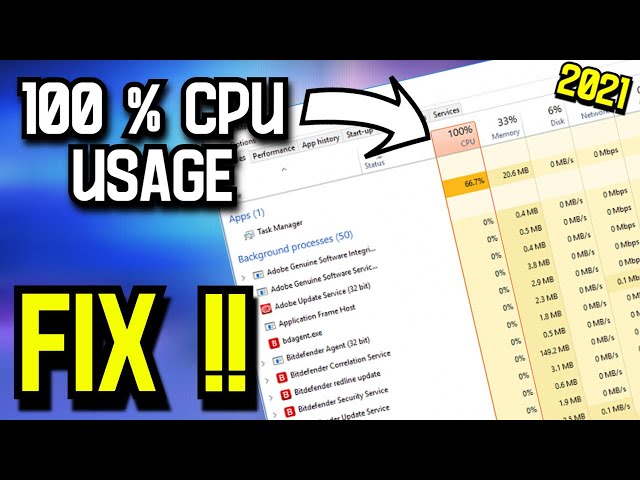

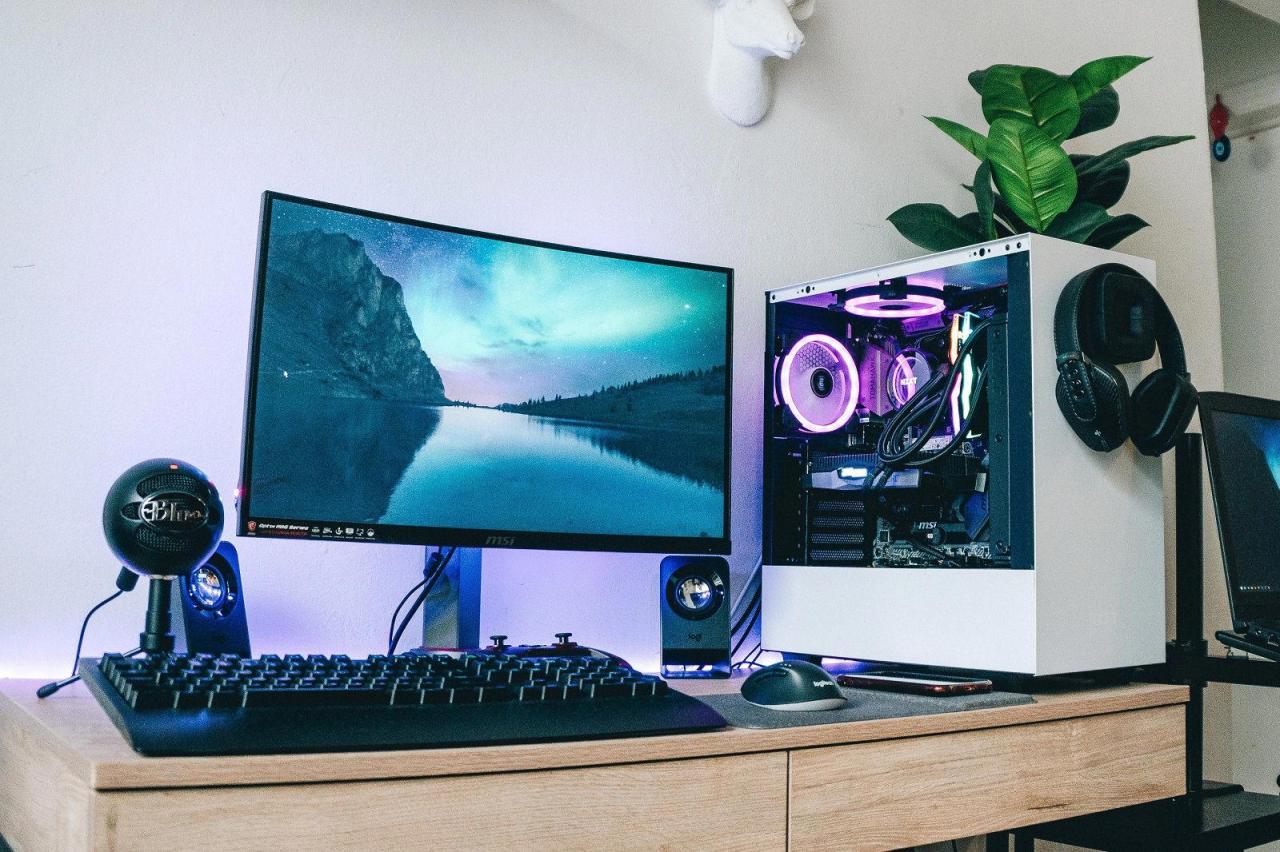
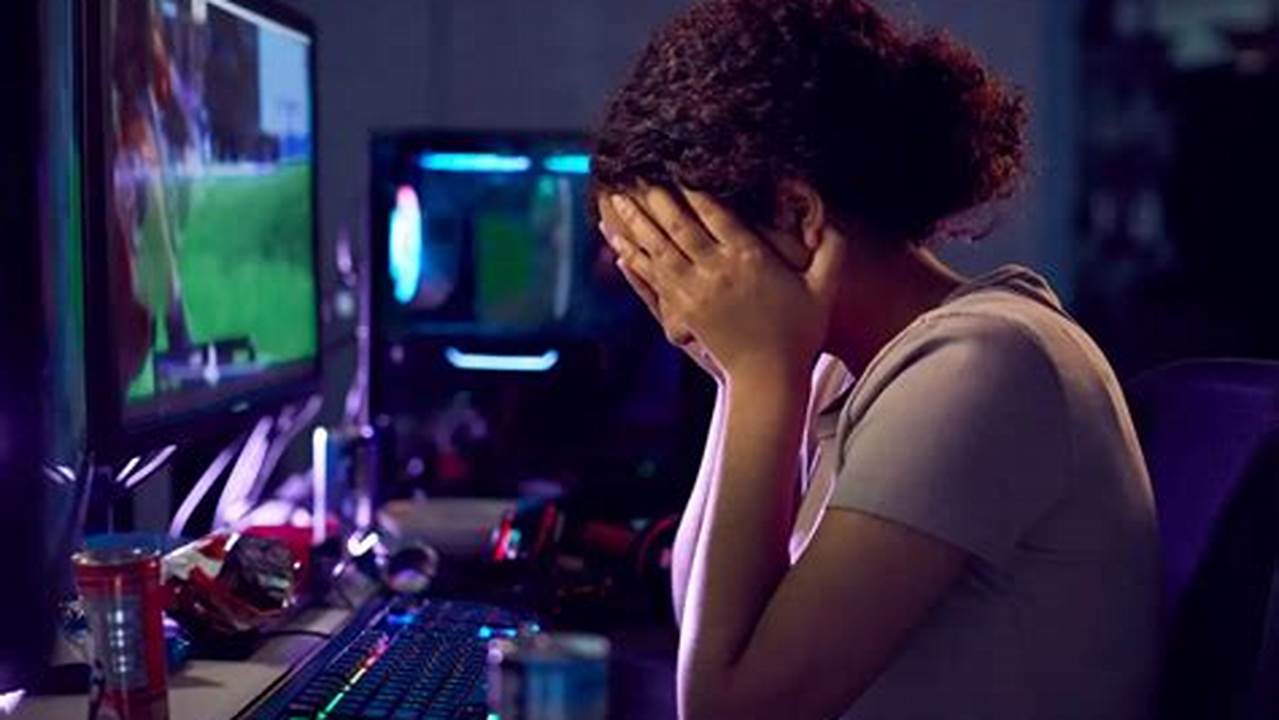

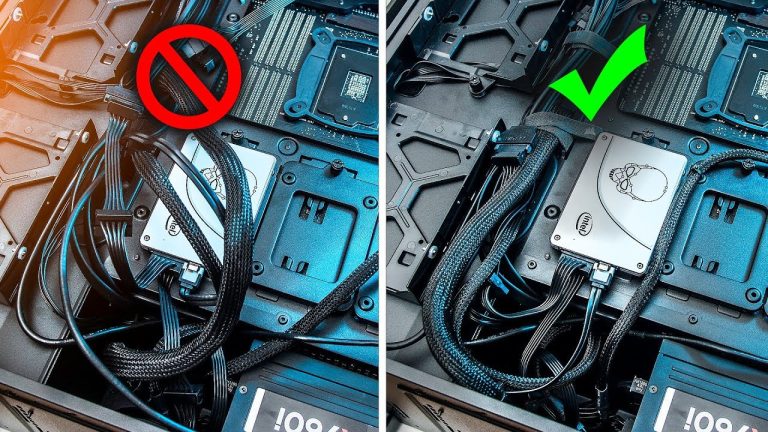
![[Tutorial] How to clean your PC from dust. PC dust cleanup tutorial](https://boticasoft.com/wp-content/uploads/2024/03/maxresdefault-54-768x432.jpg)


